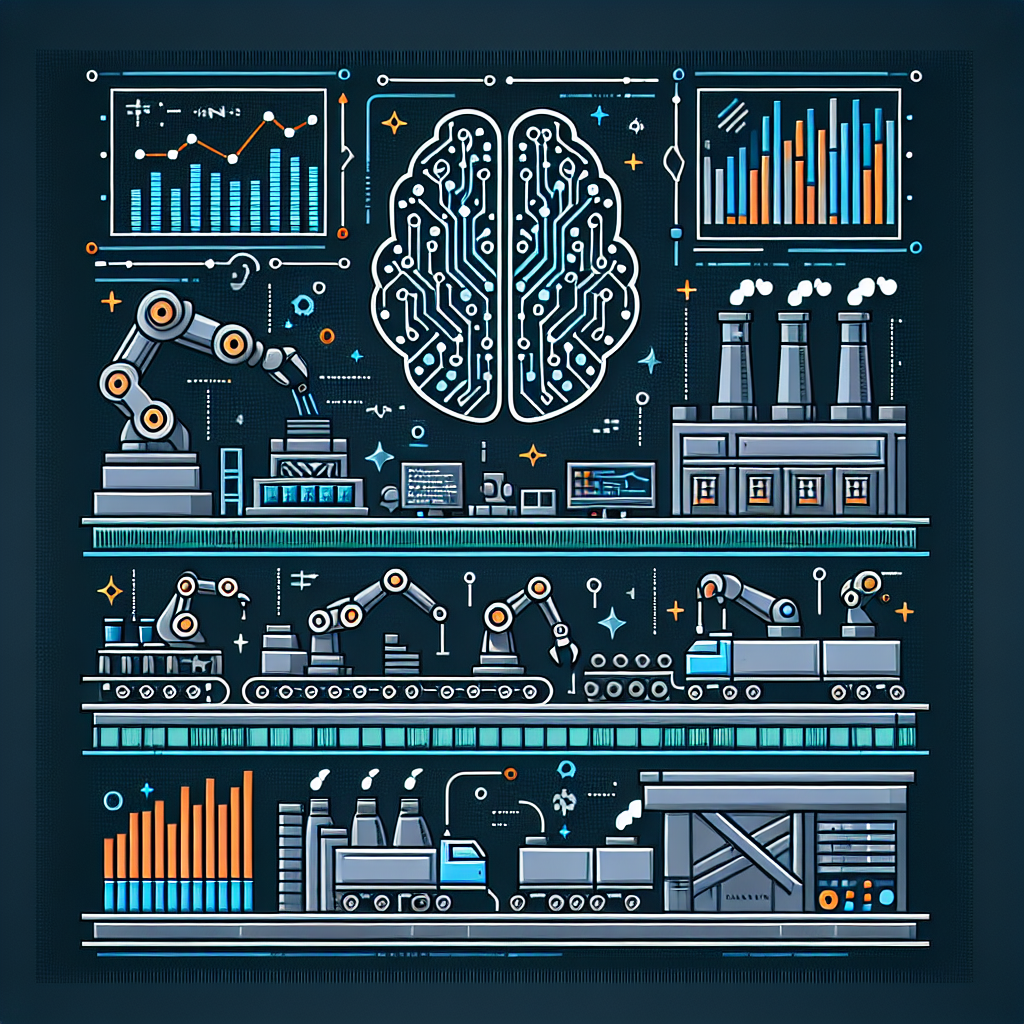In today’s fast-paced manufacturing environment, the ability to make real-time data-driven decisions is crucial for staying competitive and optimizing operations. Leveraging artificial intelligence (AI) for real-time data analytics in manufacturing can provide companies with valuable insights that can help improve efficiency, reduce downtime, and increase overall productivity.
Real-time data analytics involves collecting, processing, and analyzing data as it is generated, allowing companies to have up-to-date information on their operations at all times. AI, with its ability to process large amounts of data quickly and accurately, can help manufacturers make sense of the vast amounts of data generated by their production processes and equipment.
There are several ways in which AI can be leveraged for real-time data analytics in manufacturing:
1. Predictive maintenance: AI algorithms can analyze data from sensors and equipment to predict when maintenance is needed before a breakdown occurs, helping to reduce downtime and increase equipment reliability.
2. Quality control: AI can analyze data from sensors and cameras to detect defects in real-time, allowing manufacturers to identify and rectify issues before they impact production quality.
3. Process optimization: AI can analyze data from various sources, such as production machines, supply chain systems, and customer feedback, to identify opportunities for process improvement and optimization.
4. Supply chain management: AI can analyze data from suppliers, transportation systems, and inventory levels to optimize supply chain operations, reduce costs, and improve delivery times.
5. Inventory management: AI can analyze data on inventory levels, demand forecasts, and production schedules to optimize inventory levels and reduce carrying costs.
By leveraging AI for real-time data analytics, manufacturers can gain a competitive edge by making faster, more informed decisions based on up-to-date information. This can help companies improve efficiency, reduce costs, and increase customer satisfaction.
FAQs:
Q: How does AI collect real-time data in manufacturing?
A: AI collects real-time data in manufacturing through sensors, cameras, and other data collection devices installed on production machines, equipment, and other relevant systems. These devices continuously collect data on various parameters such as temperature, pressure, speed, and quality, which is then fed into AI algorithms for analysis.
Q: How can AI help manufacturers improve quality control in real-time?
A: AI can help improve quality control in real-time by analyzing data from sensors and cameras to detect defects and anomalies as they occur. By continuously monitoring production processes and equipment, AI can identify issues early on and alert operators to take corrective action, ensuring that only high-quality products are produced.
Q: What are the benefits of using AI for real-time data analytics in manufacturing?
A: The benefits of using AI for real-time data analytics in manufacturing include improved efficiency, reduced downtime, increased productivity, and better decision-making. By analyzing data in real-time, manufacturers can identify and address issues quickly, optimize processes, and make informed decisions that can lead to cost savings and competitive advantages.
Q: How can manufacturers get started with leveraging AI for real-time data analytics?
A: To get started with leveraging AI for real-time data analytics, manufacturers should first identify their key business objectives and areas where real-time data analytics can provide value. They should then assess their current data infrastructure and capabilities to determine what additional resources or technologies may be needed to implement AI for real-time data analytics. Finally, they can work with AI vendors or consultants to develop and deploy AI solutions tailored to their specific needs and goals.
In conclusion, leveraging AI for real-time data analytics in manufacturing can provide companies with valuable insights that can help improve efficiency, reduce downtime, and increase overall productivity. By continuously monitoring and analyzing data in real-time, manufacturers can make faster, more informed decisions that can lead to cost savings and competitive advantages. It is essential for manufacturers to embrace AI and real-time data analytics as key tools for staying competitive in today’s rapidly evolving manufacturing landscape.

